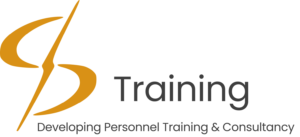5 Signs You’re a Perfect Candidate for RPL
In today’s fast-paced, ever-evolving professional world, the value of experience often outweighs formal education. Many people possess knowledge, skills, and competencies from hands-on work, self-directed learning, or non-formal education. Yet, they may feel pressured to pursue traditional qualifications, even when their expertise speaks for itself.
This is where the Recognition of Prior Learning process allows individuals to gain formal RPL qualifications based on their previous learning and work experience. Instead of returning to school or repeating courses, RPL recognises what you already know and puts it on paper as an official certification.
But how do you know if RPL is the right choice for you? Here are 5 signs you’re a perfect candidate for RPL and why it might be time to consider this alternative educational pathway.
What is Recognition of Prior Learning (RPL)?
Before diving into the signs that you’re a good fit for RPL, it’s essential to understand what it entails. Recognition of the Prior Learning process is a formal procedure used by educational institutions, training providers, and even employers to evaluate and acknowledge the skills, knowledge, and experience a person has gained. These can come from:
- Work experience
- Non-formal learning (such as workshops, online courses, or volunteer work)
- Informal learning (skills gained through personal interests or day-to-day life)
By undergoing RPL, individuals can bypass the time-consuming and costly process of re-entering formal education, instead using their existing expertise to earn qualifications or credentials.
1.You Have Extensive Work Experience in a Relevant Field
One of the most substantial reasons for pursuing the Recognition of Prior Learning process is extensive work experience in a specific field. Many professionals spend years building their expertise through hands-on experience, real-world problem-solving, and continuous learning in the workplace. However, without a formal RPL qualification, their knowledge and skills may not be recognised at the same level as those with academic degrees.
RPL provides a solution by allowing individuals to convert their professional experience into an accredited qualification. Instead of enrolling in a lengthy and expensive educational program, experienced professionals can receive formal recognition for the skills they have already acquired, making it easier to advance in their careers, secure better job opportunities, and increase their earning potential.
Why It Matters
The workplace serves as a real-life training ground where professionals gain practical, hands-on experience that is often more valuable than theoretical classroom instruction. While academic programs provide structured learning, they sometimes fail to prepare students for real-world challenges.
Despite having a wealth of practical knowledge, this professional may find it challenging to advance without a formal marketing qualification. Employers and industry bodies still prioritise certifications and degrees when hiring and promoting.
By pursuing RPL, this individual can obtain a nationally recognised marketing qualification without returning to school. This allows them to move into higher-paying roles, leadership positions, or even start their own consultancy.
2.You Have Gained Skills Through Non-Formal Learning
In today’s world, learning is no longer confined to traditional classroom settings. Many individuals acquire valuable knowledge and skills through non-formal learning methods, such as:
- Online government-funded courses from websites like DP Training.
- Industry-specific workshops and training sessions.
- Seminars, boot camps, and self-study programs.
- Volunteering and hands-on experience in various fields.
These learning experiences often provide practical, real-world knowledge that is just as valuable as a formal education. However, employers or educational institutions may not always recognise your expertise without an official qualification.
Recognition of Prior Learning (RPL) plays a crucial role. RPL allows you to convert your non-formal learning into an accredited qualification, ensuring that the skills you’ve gained outside of traditional education are formally acknowledged.
Why It Matters
Non-formal learning is becoming increasingly popular, especially with the rise of digital education and on-the-job training. Many people use these learning methods to:
- Enhance their skills for career growth.
- Explore new industries without committing to full-time education.
- Stay updated with the latest industry trends.
- Develop expertise in niche areas that may not be covered in formal education.
The challenge, however, is that most employers and certification bodies still prioritise formal qualifications when hiring or promoting employees. Even with extensive knowledge and hands-on experience, not having a recognised qualification can limit your career prospects.
Using RPL, you can bridge this gap and gain formal recognition for the skills you acquired through non-traditional learning.
3. You’re Looking to Upgrade or Change Careers
In today’s fast-paced job market, career growth and adaptability are more important than ever. Whether you want to advance in your current field or switch to an entirely new industry, having the right qualifications can make a significant difference. However, traditional education and training programs can be time-consuming and costly, making it difficult for professionals to transition smoothly.
This is where Recognition of Prior Learning (RPL) becomes a game-changer. RPL allows you to leverage your existing skills and experience to gain a formal qualification, making career progression or change faster, easier, and more affordable. Instead of starting from scratch, you can use your knowledge to achieve your career goals more efficiently.
Why It Matters:
Changing careers or upgrading your qualifications usually requires additional education, which can mean:
- Years of studying in a classroom.
- Expensive tuition fees for new courses.
- Lost income if you need to reduce work hours or take a break from your job.
RPL helps to overcome these challenges by recognising the skills you have already developed in your current or previous job and mapping them to a relevant qualification. Here’s why this is particularly beneficial:
- Makes Career Transitions Easier and Faster
- Recognise Your Transferable Skills
- Saves You Time and Money on Retraining
- Improves Job Security and Employability
- Helps You Meet Industry Requirements Without Starting Over
4.You Want to Save Time and Money
Traditional education is a valuable pathway to gaining knowledge and skills, but it often comes with significant time and financial commitments. Many degree or certification programs require years of study, during which students may accumulate substantial tuition fees, student loans, and lost earnings due to reduced work hours or career breaks. For professionals who already have the necessary skills and experience, this can feel like an unnecessary burden.
Recognition of Prior Learning (RPL) offers a streamlined and cost-effective alternative by allowing individuals to gain formal qualifications based on their knowledge. Instead of spending years studying material you have already mastered through work experience, training, or self-learning, RPL enables you to fast-track your certification, saving time and money.
Why It Matters:
RPL isn’t just about cutting corners—it’s about making education and career progression more efficient. Here’s why choosing RPL over traditional education can be a game-changer for you:
-
Drastically Reduces the Time Needed to Get Qualified
-
Saves You Thousands in Tuition Fees and Student Loans
-
Helps You Maintain Your Income While Getting Certified
-
Eliminates Redundant Coursework and Repetitive Learning
-
Provides a Faster Route to Career Advancement
5.You Want to Gain Formal Recognition for Your Achievements
Many individuals spend years honing their skills, gaining valuable work experience, and accumulating knowledge through hands-on practice. However, without formal qualifications, their expertise may go unrecognised in professional settings. This is where Recognition of Prior Learning (RPL) becomes a powerful tool—it allows individuals to receive formal recognition for their existing skills and knowledge, bridging the gap between experience and qualification.
Why Formal Recognition Matters:
While practical experience is undeniably valuable, many industries and employers place significant importance on formal credentials. Here’s why obtaining a qualification through RPL can make a difference in your personal and professional life:
-
Boosts Your Confidence and Professional Credibility
-
Opens Doors to Career Advancement and Higher Salaries
-
Makes Career Transitions Easier
-
Saves Time and Money on Further Education
-
Enhances Job Security and Employability
Conclusion
Recognition of Prior Learning (RPL) is a flexible and effective way to leverage your existing knowledge, experience, and skills. If you have extensive work experience, have gained knowledge through non-formal learning, are looking to change careers, want to save time and money, or simply wish to gain formal recognition for your achievements, Certificate IV in Disability RPL may be the perfect solution.
In today’s competitive job market, RPL offers a path to faster career advancement, increased earning potential, and personal fulfillment. It’s not just about earning a certificate; it’s about acknowledging and celebrating the value of your real-world experience.
If any of these five signs resonate with you, it might be time to explore RPL as the key to unlocking your future opportunities.
Ready to explore RPL? Start by enrolling in RPL Diploma of Community Services with DP Training. See how to turn your prior learning into a formal qualification.





